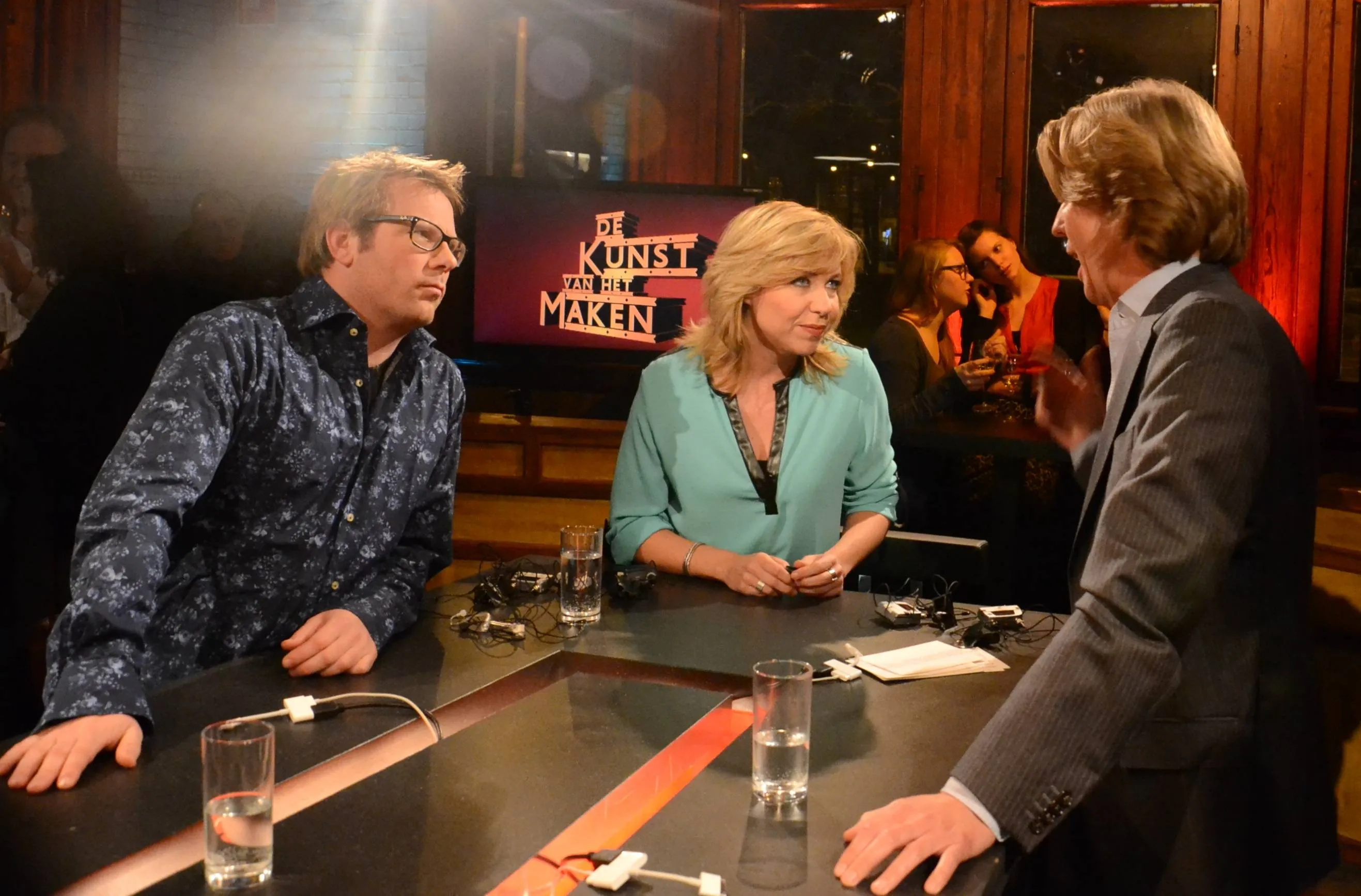Klimaatdiscussie en georchestreerde karaktermoord

Er is bij mijn weten geen enkele tak van wetenschap waar karaktermoord van wetenschappelijke opponenten zó is ingeburgerd als in de klimatologie. De tactiek is eenvoudig. Via ingenieuze constructies verbindt men klimaatsceptici met bedrijven of bedrijfstakken waarvan men denkt dat deze tégen klimaatbeleid zijn, zoals de olieindustrie (in het bijzonder Exxon) en de kolenindustrie, of nóg erger althans voor linkse types 'right-wing think tanks'! De suggestie wordt gewekt dat de betrokken klimaatsceptici marionetten zijn die in een Faustisch pact met de industrie voor een paar zilverlingen hun wetenschappelijke integriteit hebben verkocht om als pleitbezorgers op te treden van de belangen van de betrokken industrieën. En met zulke mensen hoef je natuurlijk niet te discussiëren over wetenschappelijke verschillen van inzicht. Deze strategie beoogt daarmee de reputatie van de klimaatsceptici te bezoedelen, hen te discrediteren en te intimideren, zodat ze hun mond houden. Dat heeft lange tijd behoorlijk goed gewerkt. Maar de laatste jaren zijn er steeds meer wetenschappers opgestaan die daar lak aan hadden en gewoon publiekelijk voor hun klimaatsceptische opvattingen uitkwamen.
In Europa komt georchestreerde karaktermoord gelukkig relatief weinig voor, maar in de VS is het een bloeiende bedrijfstak. Bekende websites zijn Desmogblog.com en SourceWatch. (Op beide websites kan men de naam van ondergetekende vinden. Ik zou me ook gaan beklagen als dat niet zo was.)
Omgekeerd zijn er ook aan klimaatsceptische kant publicaties waarin de auteurs het klimaatcomplex als één groot complot beschrijven. Als initiators daarvan duiken steeds weer de namen van Strong en Rockefeller op. De ervaring leert echter dat grote wereldomspannende complotten meestal niet of misschien wel nooit werken. Kleinere complotjes, zoals uit Climategate is gebleken, kunnen daarentegen wel een tijdje effectief zijn. Als het geen complot is, wat is het dan wel? Woorden als mode, hype of groepsdenken zijn wellicht toepasselijker om te beschrijven wat er aan de hand is. Hoe het ook zij, ik verzet mij altijd tegen de gedachte dat er iets mis zou zijn met de integriteit van het overgrote deel van de wetenschappers die aanhanger zijn van de menselijke broeikashypothese.
Roddel en achterklap zijn dus veel gebruikte instrumenten om klimaatsceptici te diskwalificeren. Maar er is ook nog een andere methode. Je kunt eenvoudigweg hun bestaan ontkennen, zoals Al Gore bijvoorbeeld heeft gedaan in zijn film 'An Inconvenient Truth'. Daarbij verwees hij naar een onderzoek van Naomi Oreskes, die deskundig is op het gebied van de geschiedenis van de wetenschap. Via internet heeft zij onderzocht hoeveel 'peer-reviewed' publicaties waren verschenen waarin stelling werd genomen tégen AGW (Anthropogenic Global Warming). Zij had er geen één kunnen vinden, vertelde Al Gore. De Britse klimaatscepticus Benny Peiser heeft aangetoond dat haar onderzoek niet deugde. Maar het artikel dat hij daarover schreef werd door Science geweigerd. En ook Wikipedia weigerde melding te maken van Peiser's de kritiek op het werk van Oreskes. De rel die daarover ontstond, werd uitvoerig beschreven door Lawrence Solomon (zie hier).
De censor bleek William Connolley te zijn die vele duizenden klimaatlemma's voor Wikipedia herschreef, zodat AGW-kritische geluiden buiten de deur werden gehouden. Hij heeft deze manipulatie van informatie vele jaren lang straffeloos kunnen volhouden, maar is onlangs toch door Wikipedia verbannen (zie hier.)
Dat Oreskes broddelwerk had afgeleverd, blijkt nog eens uit het overzicht hier.
Maar Oreskes had kennelijk de smaak zó te pakken dat ze samen met Erik Conway een boek schreef 'Merchants of Doubt'. De titel is reeds suggestief en doet denken aan een boek uit lang vervlogen tijden 'Merchants of Death' over de wapenindustrie. Via schuld door associatie worden de klimaatsceptici in dezelfde hoek geplaatst als de ontkenners van het verband tussen roken en longkanker. (Terzijde: ook vergelijkingen met 'flat-earthers' of Holocaust deniers' komen vaak voor.)
In 'De morgen' schonk Nathalie Carpentier aandacht aan het boek een mooi staaltje van hoor zonder wederhoor. Zij schreef onder meer:
Sommige Amerikaanse wetenschappers specialiseren zich in een bizarre discipline: bewijzen dat wat wetenschappelijk bewezen is toch niet helemaal klopt
Toen Climate Gate dit jaar de klimaatwetenschap overspoelde, ging bij de Amerikaanse wetenschapshistorica en auteur Naomi Oreskes meteen een alarmbelletje rinkelen. De controverse kwam haar al te bekend voor. Een handvol in de VS zeer invloedrijke wetenschappers heeft in de voorbije decennia telkens geprobeerd acties tegen belangrijke milieuproblemen af te blokken of te vertragen. Steevast op dezelfde manier: door gebruik te maken van de tabaksstrategie.
Zie verder hier.
Vreemd dat 'bewijzen dat wat wetenschappelijk bewezen is toch niet helemaal klopt' hier als bizarre discipline wordt gekwalificeerd. In de eerste plaats is de menselijke broeikashypothese helemaal niet bewezen. En voorts is er ook nog zoiets als vooruitgang in de wetenschap waarbij oude denkbeelden plaats moeten maken voor nieuwe. We weten nu dat de aarde niet plat is en dat zij om de zon draait in plaats van andersom. Voorheen werd het omgekeerde als vaststaand aangenomen. Zonder voortdurende kritische toetsing, ook van geaccepteerde hypothesen, is wetenschappelijke vooruitgang niet mogelijk. Maar men krijgt wel eens de indruk dat wanneer het om klimaat gaat onvoorwaardelijk geloof in een onbewezen hypothese prevaleert boven 'evidence-based science'. En wee degene die daartegen zijn stem verheft!
Oreskes en Conway richten hun giftige pijlen vooral op drie excellente Amerikaanse wetenschappers: Frederick Seitz, Robert Jastrow en William Nierenberg, die waren verbonden aan het George C. Marshall institute. Ze zijn inmiddels allen overleden.
In een reactie op het boek van Oreskes en Conway schrijven William OKeefe en Jeff Kueter van hetzelfde instituut onder meer het volgende.
In questions of science, the authority of a thousand is not worth the humble reasoning of a single individual.
Galileo Galilei
The book Merchants of Doubt, written by Naomi Oreskes and Erik Conway, ostensibly provides insight and understanding about the challenge to the climate science orthodoxy. Although cloaked in the appearance of scholarly work, the book constitutes an effort to discredit and undermine the reputations of three deceased scientists who contributed greatly to our nation. These men were accomplished scientists, leaders of universities and major research organizations, advisers to government, and the founders of the George C. Marshall Institute. This book questions their integrity, impugns their character, and questions their judgment on the basis of little more than faulty logic and preconceived opinion. One is left to wonder why such a book was written. Two lines in the introduction offer a clue on every issue, they were on the wrong side of the scientific consensus and it is a story about a group of scientists who fought the scientific evidence and spread confusion on many of the most important issues of our time. These statements presume certain truths without justifying them. First, Oreskes-Conway assert the importance of consensus these scientists were on the wrong side of the scientific consensus, they state. Science is not a popularity contest and scientific history is replete with examples of consensus views that were flat-out wrong. Second, Oreskes-Conway say these scientists fought the scientific evidence. That should surprise no one. In fact, if the opposite were true, we all should be very concerned. Challenging the theory, hypothesis, and evidence is after all, the basis of modern science. Whenever a theory appears to you as the only possible one, take this as a sign that you have neither understood the theory nor the problem which it was intended to solve, the philosopher Karl Popper reminds us. Finally, Oreskes-Conway say these men spread confusion. Their actions spread confusion only in the sense that their views differ from the prevailing orthodoxy. The authors discount entirely the possibility that the questions of science were (and are) not as clear cut as is claimed.
Zie verder hier.
Ook de aartsvader van de internationale klimaatsceptici, Fred Singer, wordt door Oreskes-Conway op de korrel genomen en als lobbyist van de tabaksindustrie neergezet. Aan zijn reactie, die in Energy & Environment verschijnt, ontleen ik de volgende passages:
Yes, smoking leads to lung cancer; but on SHS he should read Congressional Research Service report CRS-95-1115 and assorted academic studies to learn how EPA fudged statistical analysis to come up, in 1993, with their scary conclusion of 3000 annual deaths from lung cancer. [To discredit my work on climate science, and because I agree that EPA misused statistics, I have been falsely accused to be in the pay of the tobacco lobby. Not only untrue, but I have never smoked, find SHS irritating, and serve on the advisory board of an anti-smoking organization.]
Fred Singer interpreteert het boek van Oreskes-Conway uiteindelijk vanuit een verrassend perspectief:
But perhaps one should take the long-range view. The AGW alarmists are losing the scientific debate and they are becoming desperate. Its not just that the current domestic economic problems make some future climate change seem unimportant; its the changes in climate science itself: the rapidly disappearing evidence for any significant AGW. These people are destructive to the normal process of scientific debate, replacing argument by reason and fact with the politics of personal attack and libel. In so doing, they are eroding the trust the public has invested in science and scientists, who are coming to view scientists as just another special-interest group. You can see it in the polls. Works like Oreskes/Conway and their ideological supporters are accelerating this process. It is time to return to a focus on the science (which the AGW alarmists seem to be incapable of doing).


